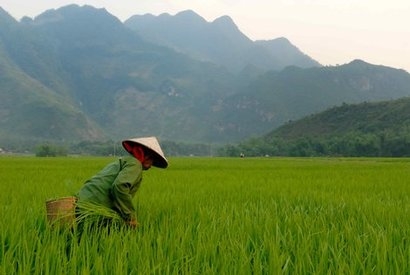
Modern Energy Management (MEM), a company that specialises in delivering project lifecycle certainty to renewable energy developers, financiers and investors, has been engaged by a number of investors to deliver early stage project wind and solar energy project development in Myanmar, Vietnam, Indonesia and the Philippines.
Faced with a lack of wind energy investment opportunities in these markets, investors have turned to MEM to help them initiate up to ten investible projects with a combined value of $560 million and capacity of 400 MW over 5 years.
Wind energy has been seen as having low deal flow in this region as inexperienced local developers in these four countries struggle to originate investable renewable energy projects. However, this is predicated on the lack of knowledge from local developers as to how to conduct early project development according to the international standards that would assure foreign investors of the balance between risks and returns.
MEM will help its investor clients identify and assess site viability at its earliest stages. In addition, the team will scope future overall site development, including scheduling and budget to demonstrate bankability.
“Projects have to get through a number of gates that focus on risks and costs before we recommend to investors that they move forward with a broader assessment of the fundamentals” said Aaron Daniels, Managing Director of MEM, speaking about the company’s approach to initiating projects. “Our focus is not only on finding projects with good resources, but also projects that can be built with a cost efficiency. Building wind projects in southeast Asia is complex, and requires a combination of local knowledge and wind farm development expertise. These kinds of projects carry high risks that need an experience team to manage them and ensure investors are able to realise double digit returns.”
Investors are beginning to look more closely at wind energy investments in Southeast Asia, as the potential for such projects to be successful becomes clear. Wind farms can be built significantly faster than other infrastructure projects, offering quicker returns. However, whilst many countries in the region have good wind resources, the complexity of building projects, coupled with lack of local expertise, is slowing deal flow for investors.
Additionally, key project facets, such as resource measurement campaigns, are not conducted in line with international standards. In Vietnam, for instance, land for wind farms is often allocated according to availability, by-passing entirely an assessment of resource suitability and potentially reducing investor returns for the lifetime of the asset.
With one eye on their exit, early stage investors will want to work with advisors whose local knowledge and sound wind energy development experience allows them to identify the best sites and navigate untested, and often contradictory, local development laws, to deliver a project that will appeal to prospective buy-out teams at pension and insurance funds.
For additional information:

